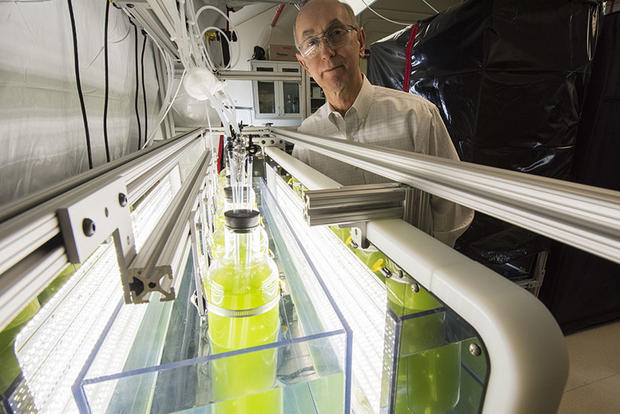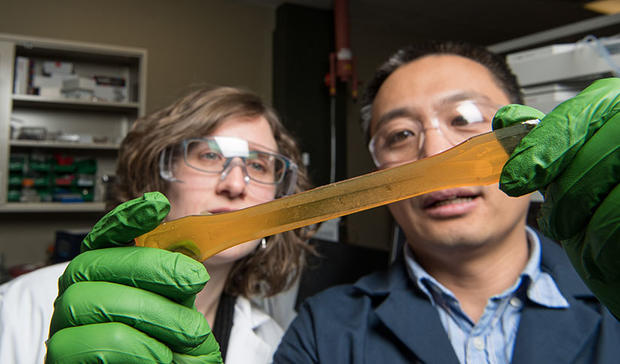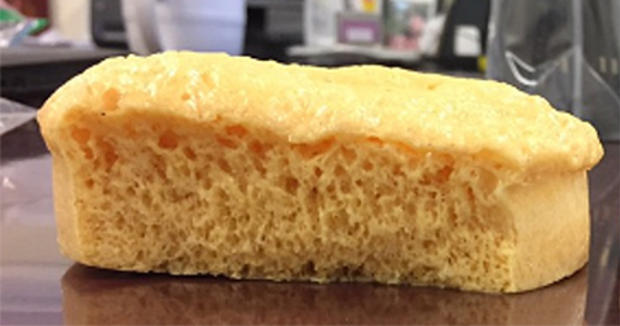NREL Scientists In Golden Develop Non-Toxic Polyurethane
GOLDEN, Colo. (CBS4) - Scientists at the National Renewable Energy Lab in Golden have invented a new polyurethane that originates from algae, waste grease, or natural oils. The "greener" polyurethane eliminates health-damaging toxins inherent with the current petroleum-based polyurethane.
Polyurethane is a type of plastic developed in the 1950s. Its uses range from wood finishes, adhesives, sprayable foams and synthetic clothing fibers.
More than 16 millions tons of it are produced globally every year, according to an NREL press release distributed Friday.
"Very few aspects of our lives are not touched by polyurethane," stated Phil Pienkos, a chemist who recently retired from the NREL after nearly 40 years of research. "Current methods largely rely on toxic chemicals and non-renewable petroleum. We wanted to develop a new plastic with all the useful properties of conventional poly but without the costly environmental side effects."
Pienkos worked with NREL colleagues Tao Dong, an expert in chemical engineering, and Lieve Laurens in the research.
The secret? Preparing the base oil—anything from canola oil or linseed oil to algae or food waste—for further chemical reactions. Managing those reactions then allows the creation of a polymer with properties comparable to conventional polyurethane.
"Less raw material per pound of polymer, lower cost, and a lower overall carbon footprint," Pienkos continued. "It looks to us that this offers remarkable sustainability opportunities."
"We've demonstrated that the chemistry is tunable," Dong said. "We can control the final performance through our approach."
After retiring last April, Pienkos established Polaris Renewables, a company designed to help accelerate the commercialization of the novel polyurethane. While he continues with his responsibilities as an NREL emeritus researcher, Pienkos is also doing outreach to industry to find additional corporate partners, especially in the fashion industry through the international sustainability initiative Fashion for Good.
"In the fashion industry, customers are demanding sustainability," he explained. "They will pay something of a green premium if you can demonstrate a lower carbon footprint, better end of life disposition."
In the two short years, several companies have already contributed resources and research partnerships in the push for its commercialization.
A 2020 U.S. Department of Energy Technology Commercialization Fund award, for example, brought in $730,000 of federal funding to help develop the technology, as well as matching "in kind" cost share from the outdoor clothing company Patagonia, the mattress company Tempur Sealy, and a start-up biotechnology company called Algix.
"I think this is a great opportunity to solve the plastic pollution problem," Dong said. "We need to save our environment, and part of that begins with making plastic renewable."






